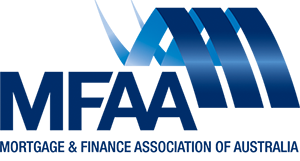In an ever-changing property market, borrowers still face one big question: do you go for a fixed or variable interest rate on your home loan?
It can be a tough choice, and the answer usually comes down to personal preference and circumstances. Interest rates are of course a raging topic in 2023, with non-stop coverage about the Reserve Bank of Australia hiking interest rates and homeowners facing down a ‘fixed-rate cliff’. In short, there’s a lot to consider when a new mortgage is on the line.
So before you make your call, here’s a few things to know about fixed vs. variable rate home loans.
Fixed rate loans
If you choose a fixed rate loan, your interest rate is ‘fixed’ for a certain period you determine with the lender, which is usually between one and five years, although some lenders offer a 10-year term.
During that fixed period, both your interest rate and your required repayments will not change, which is a plus for managing your budget. This protects you against fluctuations in rate movements until your term expires, at which point you’ll be moved onto the lender’s variable rate.
Shorter term fixed periods – e.g. one and two years – usually offer the most competitive rates, as there’s less risk for the lender. Of course, by fixing your rate, you’re stuck with that rate for the fixed period, even if variable interest rates decrease for other borrowers.
Variable rate home loans also tend to have more features than fixed rate home loans, such as offset and redraw facilities, so be aware of the added extras you’ll be passing up. You may also be hit with costly fees if you choose to refinance your home loan before the end of the fixed term.
Variable rate loans
While a fixed rate loan offers certainty that your repayments won’t fluctuate for the duration of your term, a variable rate loan has other benefits.
If you opt for a variable rate, that percentage can change significantly throughout the loan term due to market conditions and the Reserve Bank of Australia’s decisions to increase or decrease interest rates.
So what does that mean in practical terms? Well, your required minimum repayment amount will increase if interest rates go up, and decrease if interest rates fall, which can have a very real impact on your bank balance. While no one’s going to quibble with paying less, it’s important to budget smartly and build in a ‘buffer’ for higher loan repayments in the event of an interest rate hike. You can handle these calculations yourself, or get in touch with a broker to help you.
As previously mentioned, variable rate home loans offer additional features that might not be available on a fixed term. For example, many variable rate home loans give you the option to pay off your home loan faster by making additional repayments, either on a schedule or as a lump sum.
Other common features include access to an offset account, which can reduce the amount of interest you pay and be used for everyday transactions, and redraw facility, which allows you to access additional repayments you’ve made over and above the required minimum repayment amount.
Split fixed/variable loans
A split home loan is when you divide your loan into multiple parts – i.e. you could nominate a portion of the loan to have a fixed interest rate and the remainder could have a variable interest rate.
The split is up to you – it could be 50/50, 60/40, 70/30, or another ratio that makes sense to you. By splitting, you get the benefits (and yes, the risks) of both lending options. A broker can help you decide if a split loan suits your needs.
Navigating the current market
As even the most casual news consumer can tell you, the interest rate rollercoaster is still climbing. As rates rise, lenders will test your ‘serviceability’ on a higher interest rate, to ensure you can make your ongoing repayments.
In the fixed vs. variable debate, there’s no ‘one size fits all’ answer. To find out the most ideal option for your lifestyle and peace of mind, start chatting to a mortgage broker today.
A mortgage broker can help you help choose between fixed vs. variable rate home loan
Broker One Finance is a mortgage broker in Melbourne specialising in home loans, investment property loans and refinancing. Contact us today for an assessment call.
Stay tuned for more tips and tricks to help you navigate the ever-changing economic environment and property market.




